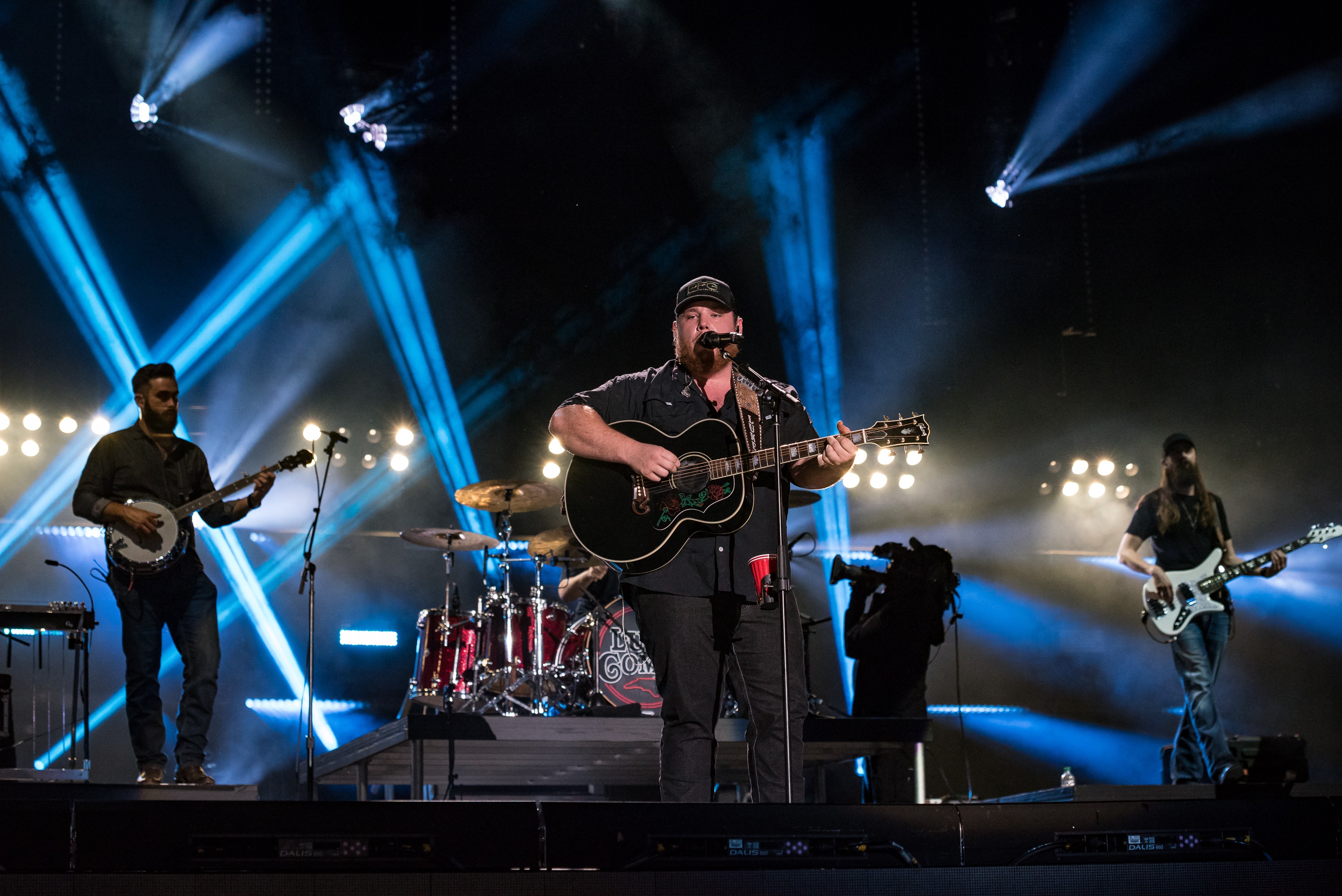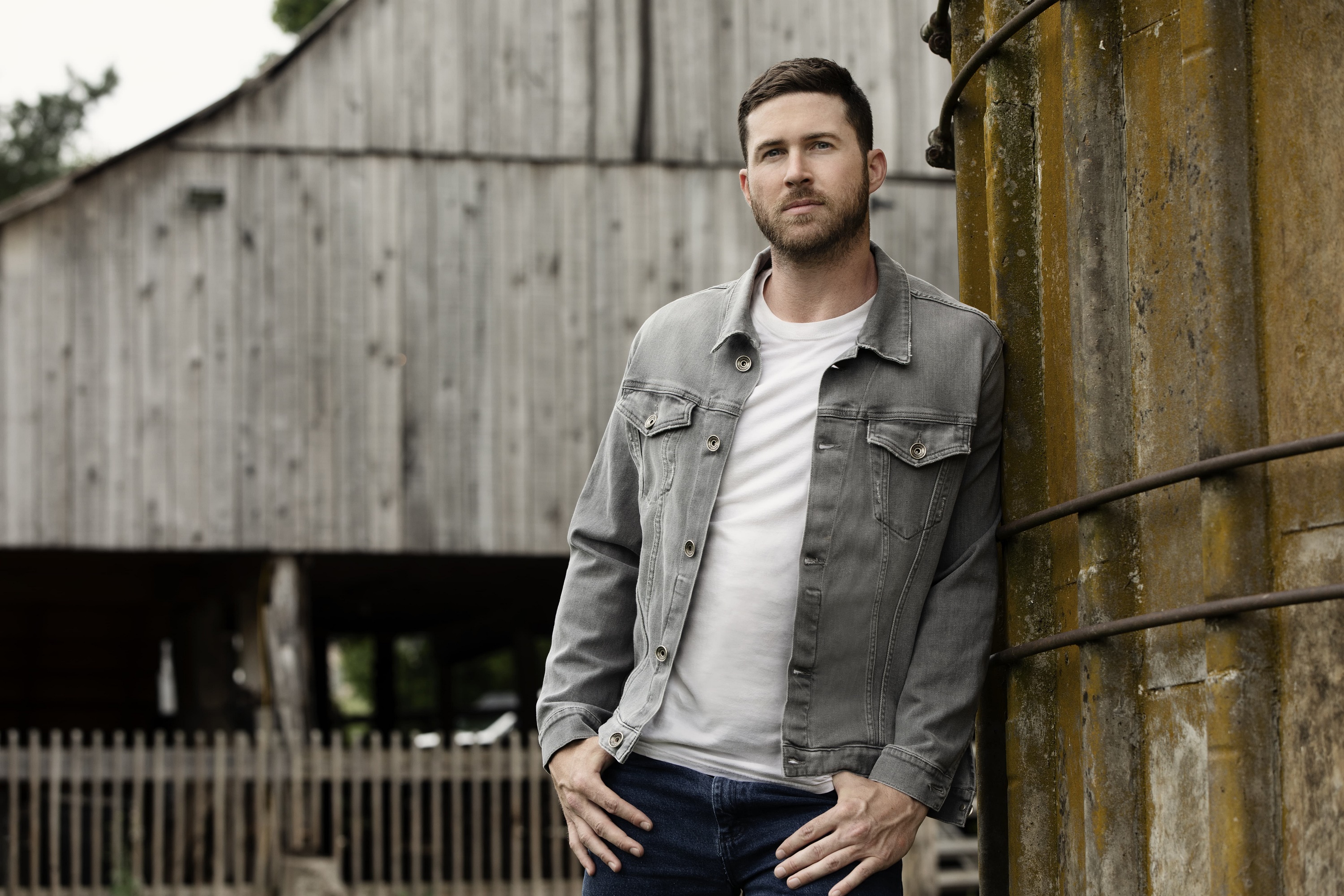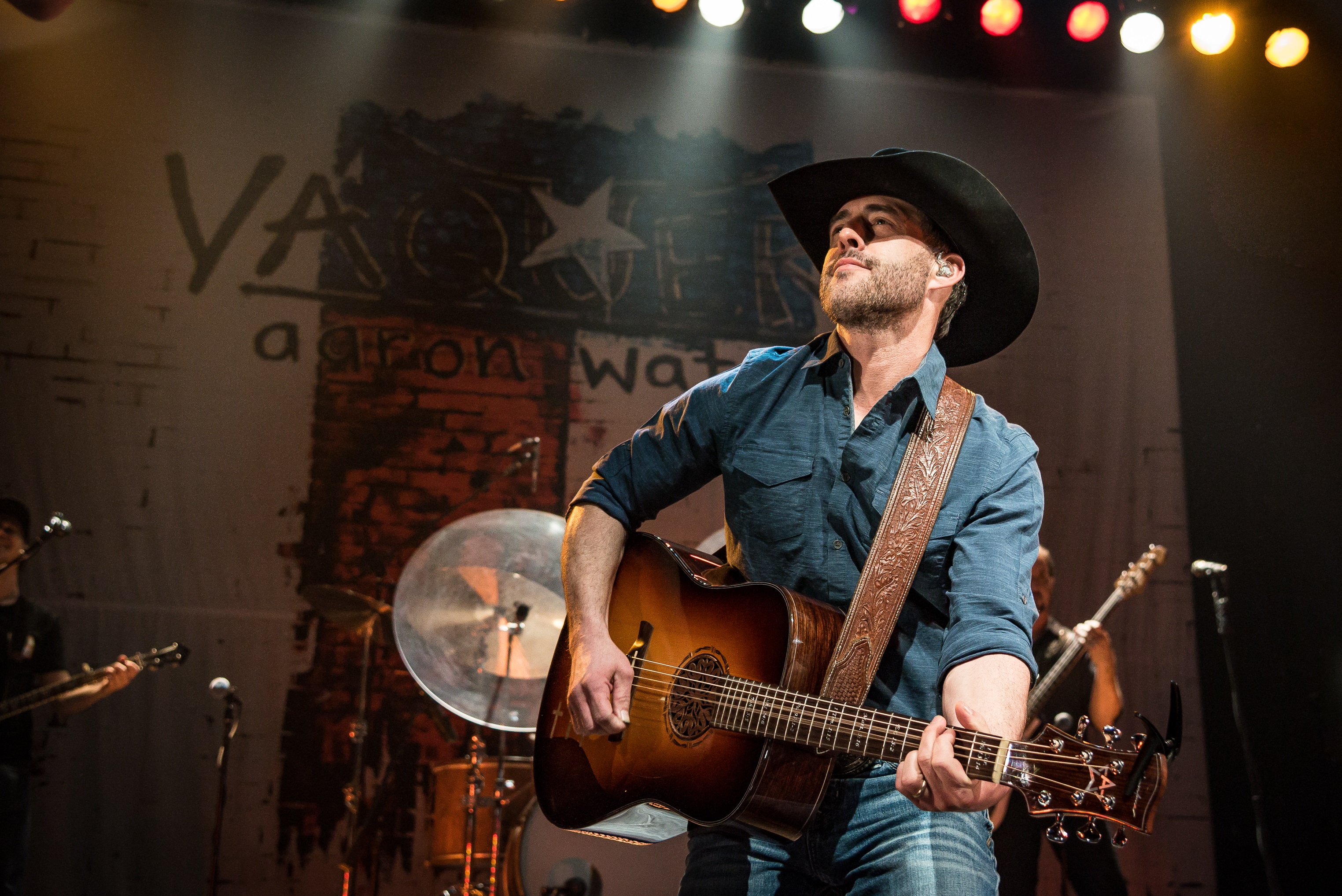New Nashville: Country Artists Are Carving Paths Elsewhere Before Moving to Music City
These stars have built solid fan bases outside of Nashville.

Nashville has long been regarded as a 10 year town, meaning that it often takes a decade before an artist will pick up traction. The 10 year town mentality is slowly changing as country acts like Luke Combs, Riley Green and Cody Johnson spent years laying the groundwork in other cities before garnering the coveted record deal in Music City.
Combs first picked up the guitar at the age of 21 after his mother mentioned Kenny Chesney began playing the instrument at his age. Now 28, the North Carolina native has amassed five No. 1 songs with “She Got the Best of Me,” “One Number Away,” “When It Rains It Pours,” “Hurricane” and “Beautiful Crazy” becoming the first solo country artist to amass five consecutive career-opening chart toppers on Billboard’s Country Airplay chart.
While the singer-songwriter has lived in Nashville just over four years now, he got his start in the North Carolina bar circuit. Born in Charlotte and raised in Asheville, Combs began playing gigs in Boone, N.C., where he went to college.
In the midst of classes, writing songs and working two jobs, Combs decided to ask the owner at the bar he was a bouncer for if he could play a show there. Located in the middle of a strip mall with apartments above, the bar owner turned him down fearing noise complaints from the tenants upstairs. So, Combs reached out to another local establishment.

Luke Combs; Photo by Andrew Wendowski
“I played rugby in college and we hung out at this specific bar in Boone, which is no longer open,” he tells Sounds Like Nashville. “I went to the owner and I was like, ‘Man, you should let me play a show.’ He was like, ‘Yeah, dude.’ We wrote it on the calendar and set the ticket price for a dollar to get in. I made 200 bucks. I will never forget — I made $200 and 200 people came.”
Impressed with the turnout, Combs went back to the bar he worked at and told his boss of his success. Eventually, he agreed to allowing Combs play every week for two years. Combs’ once a week gig expanded to three nights with his friend, and the two singers put together a band. Soon enough, they were traveling throughout North Carolina booking shows with their band.
“There were five or six years of me teaching myself to play guitar and writing really bad songs by myself or with my buddies in college, and playing shows in my little college town to then expanding outward to the rest of North Carolina,” he shares.
He continues, “Then come August 2014. My lease was running out in Boone and I was like, ‘We should probably just move to Nashville.’ I had been out here a couple times. I recorded two EPs before I moved to town and I came out here to record them. I came out and wrote for eight months and ended up getting a booking deal in April of 2015 at APA [Agency] and hit the road. Everything else just sort of fell into place since then.”
One year after garnering his booking deal, in October 2016 Combs signed with Reviver House Artists / Columbia Nashville. The following June he released his major label debut album, This One’s For You.
“For me, it’s really been a blessed road. I went through my crappy Ramen Noodle phase when I was living in Boone for a long time,” he adds. “Luckily, I didn’t have to spend time waiting tables or bartending [in Nashville]. I have a lot of respect for people that do that because I understand how hard it is just to do the music. I can’t imagine having a work schedule around it.”
While Combs’ rise to stardom may seem quick to some, his manager, Chris Kappy, says much of his success has to do with his authenticity and the fact that the singer has a say in every aspect of his career.
“He’s so hands-on with what he puts out to the public, to his fans. He’s invested. He puts a lot of thought into it,” Kappy explains. “He put [his album] out there and said, ‘This is what I want. This is the idea that I’m pushing out to everybody. This is how I want you to portray it for me.’ He’s so invested in the music, creatively, all the way around. That shows on stage. It shows why we have so many fans that are so invested in us. They fight for us and they’re excited to be involved.”

FLORENCE, AZ – APRIL 07: Cody Johnson performs during Country Thunder Music Festival Arizona – Day 3 on April 7, 2018 in Florence, Arizona. (Photo by Rick Diamond/Getty Images for Country Thunder USA)
Much like Combs, Cody Johnson is completely invested in every aspect of his career. The Texas native has been independent for 10 years now, having built himself a strong following in the southeast. With over 10 No. 1 songs on the Texas Regional Radio Report and having made history as the first independent artist to sell out RodeoHouston, Johnson is far from an overnight success.
After 10 years of building his career from the ground up independently, the singer garnered a major record deal. Last year, Johnson signed a 50-50 co-venture with Warner Music Nashville to release his latest album, Ain’t Nothin’ To It. When shopping his record to various labels, Johnson and Warner settled on a deal where he didn’t have to give up ownership of his music or masters. His album was released in January on the newly minted CoJo Music / Warner Music Nashville imprint and debuted at No. 1 on Billboard’s Country Albums chart.
“When it comes to my publishing, when it comes to my masters, when it comes to my creative control, my business, there’s a lot of things I’m not willing to give up,” Johnson tells Sounds Like Nashville in an interview at Warner Music Nashville ahead of his album release. “Not because of me feeling like I know it all, I just don’t think I should have to give that up.”
He adds, “Here we are at Warner Brothers where they said, ‘Fine. Let’s do the 50/50. A co-venture. You’re the business owner, I’m a business owner. We’re going to bring you ideas that may or may not work. You bring us ideas that may or may not work.’ I do still work for myself. I’m not working for anybody here. They’re not working for me. For them to get behind it, to me it’s groundbreaking.”
Johnson has had numerous label offers over the years but none like the 50-50 deal Warner presented him. “I didn’t leave town bitter. It just wasn’t for us,” he says about rejecting previous deals. “We went back, hit the road, and played music. Just because you don’t have a record deal doesn’t mean you have to put your guitar up.”
The “On My Way To You” singer credits the success of artists like Combs and Chris Stapleton in changing the way the country industry presently navigates record deals.
“I feel like the pendulum has been swinging back for a while to open the door for guys like Luke Combs. I think it speaks volumes to that type of artist. There’s now room for an artist like me whereas two years ago, there really wasn’t,” the neo-traditionalist singer admits. “The variety of country music that we have now has finally given way to a guy like me that does touch on neo-traditionalism. I feel like [Stapleton’s] Traveller record opened the door for a lot of things. It changed country music.”
What’s also slowly changing country music is the rise of streaming platforms like Spotify, Pandora and Apple Music. Because of streaming and social networking, Johnson has accumulated over 500 million streams independently.

Riley Green; Photo Credit: Harper Smith
A valuable asset to have when negotiating a record deal, Riley Green credits social media for where he is today as his debut single, “There Was This Girl,” recently hit No. 1 on the MusicRow Country Breakout chart.
The Big Machine Label Group Records signee also credits his tour manager, John Worthington, on the decision to create a social media presence when he was playing bars in college. At the time, Green was recording demos in a friend’s basement to give away at local concerts in Alabama. Worthington, who also serves as Sam Hunt’s tour manager, would reach out to Green when Hunt was unavailable for gigs and offer the slot to his fellow Jackson State University classmate.
“I remember John called me and said Sam had an opportunity to play for Travis Tritt in Georgia and couldn’t do it. He was trying to throw me a bone and said, ‘I threw your name out there. I don’t know if it’ll work, but they might call you. What are your social media numbers like?'” Green recalls. “That was the first moment I can remember sitting there going, ‘Okay, well now I actually have to make a social media page for my music,’ and that was really a helpful thing. There’s no way you can make it without it now. It’s a way for somebody to set their self apart from other artists and get their music out to people without actually having a song on the radio. It’s definitely the reason I got where I’m at now.”
Worthington began booking shows when he was in college for his fraternity and for a bar he worked at. Green frequently played the bar and Worthington admits that there was something special about the singer that made him more memorable than the other bands who came through.
“He has that special charisma that made people want to come to his shows,” Worthington explains. “Every time you saw him he got a little bit better as a singer, a little bit better as a player, a little better as a showman. As I started working with Sam, I tried to throw him stuff and he kept progressing. We always talked about working together and it just blossomed at the right time with Sam taking some time off and then him signing his record deal.”
Green has seen a direct result in his success with the rise of social media and streaming. Specifically, his song “Bury Me In Dixie,” which he penned about his home state of Alabama, has won over fans in places he’d never been himself.
“When I went and played in these towns that were new markets to me, people showed up. [It was] just as surprising four years ago when that was going on as it is now when I go to Chicago and people show up,” he admits. “That’s what streaming and social media will do. Social media has 100-percent changed how people can get music and it makes it to where an everyday person can find new music. It’s helped people like me get our music out.”

Aaron Watson; Photo by: Andrew Wendowski/Sounds Like Nashville
Not everyone is sold on the idea that only a major label can further an artist’s career. While Green, Johnson and Combs have worked hard to sign a label deal, Aaron Watson has chosen to stay independent.
“Isn’t it funny that people think you have to sign a record deal to do what you love?” Watson, who will be celebrating 20 years in music later this year, asks. “There’s not much that gets me fired up [except] when people in the industry think that because you haven’t signed a record deal you’re not good enough. A lot of times I remind them, ‘Well maybe independent artists are just smarter.’ The guy who owns his music, in the end, is going to win.”
Watson notes that with everything pointing towards streaming, the artist who owns his publishing and music will ultimately be the most successful. “You need to cling to what’s yours,” he stresses.
The Texas native will be releasing his forthcoming studio album, Red Bandana, on his own label BIG Label Records later this year and the project will be distributed by ADA Worldwide. Being an independent artist, Watson owns every album he’s ever released. While he realizes his career trajectory is very different from other artists in the genre, he appreciates the fact that nobody tells him what to do.
“You just have to focus on your heart, and make the best music that you can make. I think I used to focus on some of those things that were being said, and now I’m just kind of like, ‘This is me, this is who I am. If you don’t like it, don’t stream it. This is the best that I got,'” he reasons.
Whether independent or signed to a major label, Watson, Combs, Green and Johnson all agree that the biggest champion of their music has been the country fans. This is not something they take lightly.
“God has really blessed me with an incredible family and incredible fans. I love country music. I love the fans,” Watson says. “We just remember where we came from, and we stay focused on the fans.”
Combs, who recently became the first artist since Tim McGraw in 2000 to have two songs in the Top 10 of Billboard’s Country Airplay chart simultaneously with “Beautiful Crazy” and “She Got the Best of Me,” has witnessed firsthand the power his fans have had throughout his career.
“We’ve had so many fans that have stuck with me from the early social media days all the way up until now. I see the same ones at shows now. It’s really cool to have people that are that bought into what we do, it’s really special,” Combs concedes. “I have a serious commitment to my fans at this point and go out and play these songs and write new ones and put on the best show that I can. That consumes a lot of my existence.”


